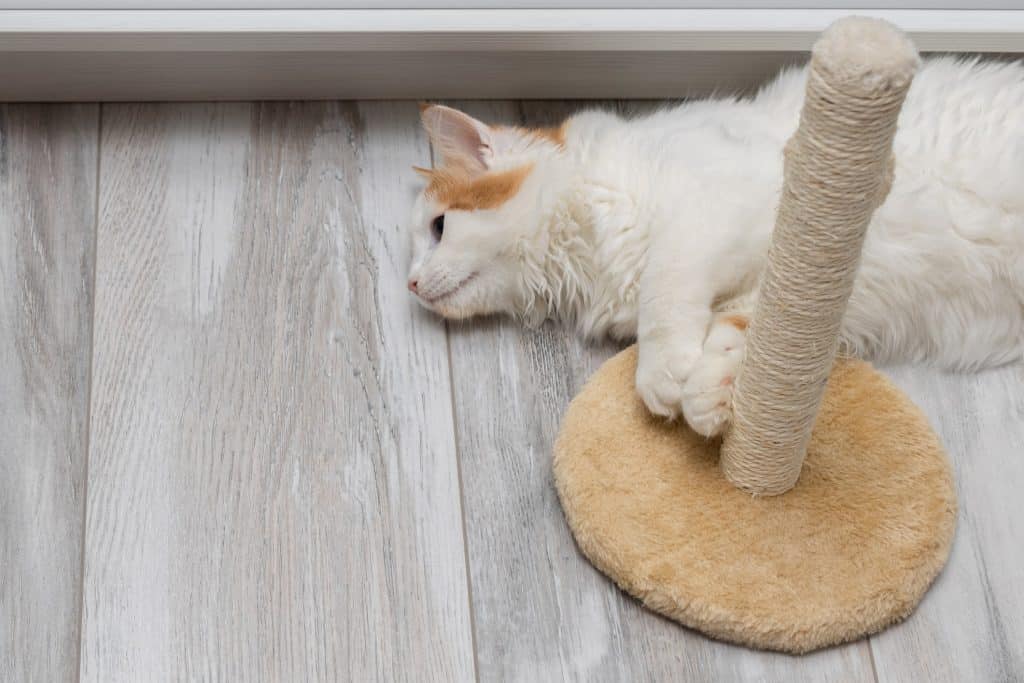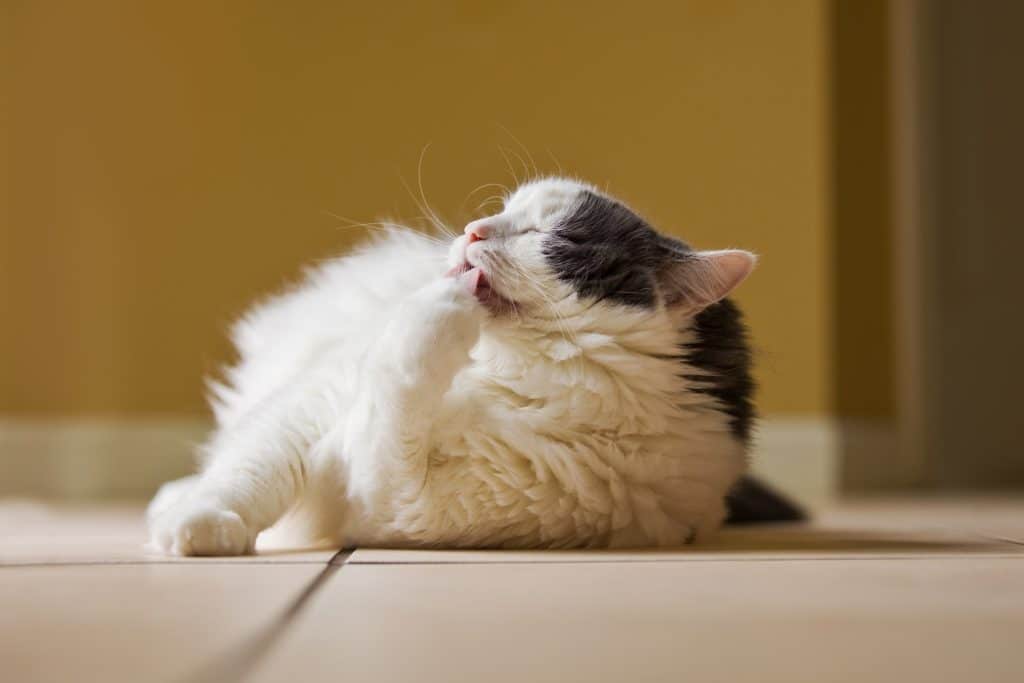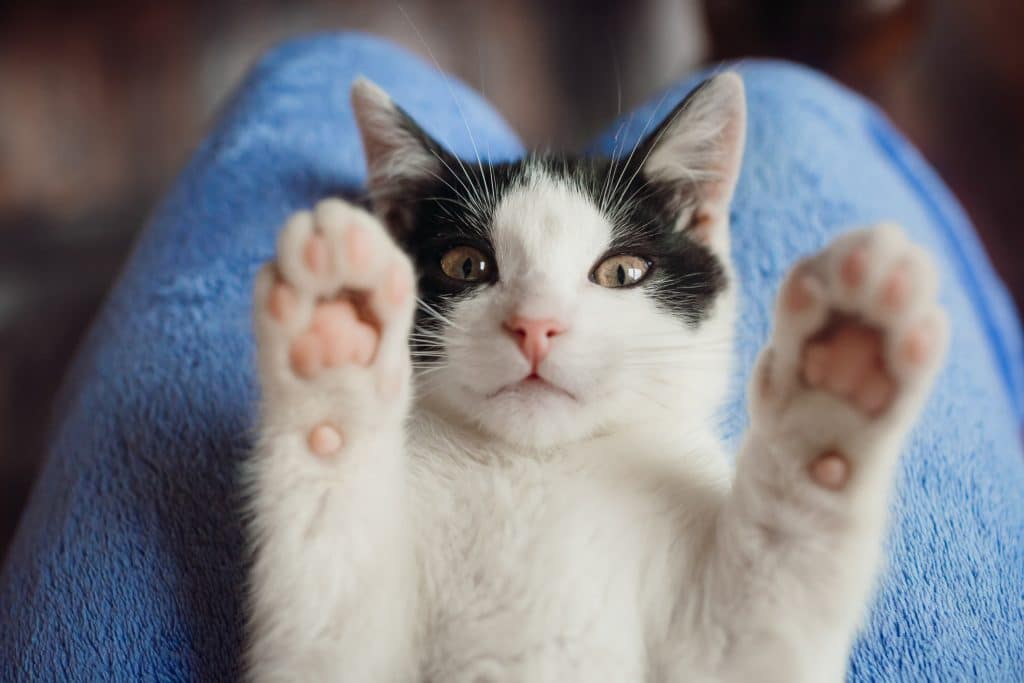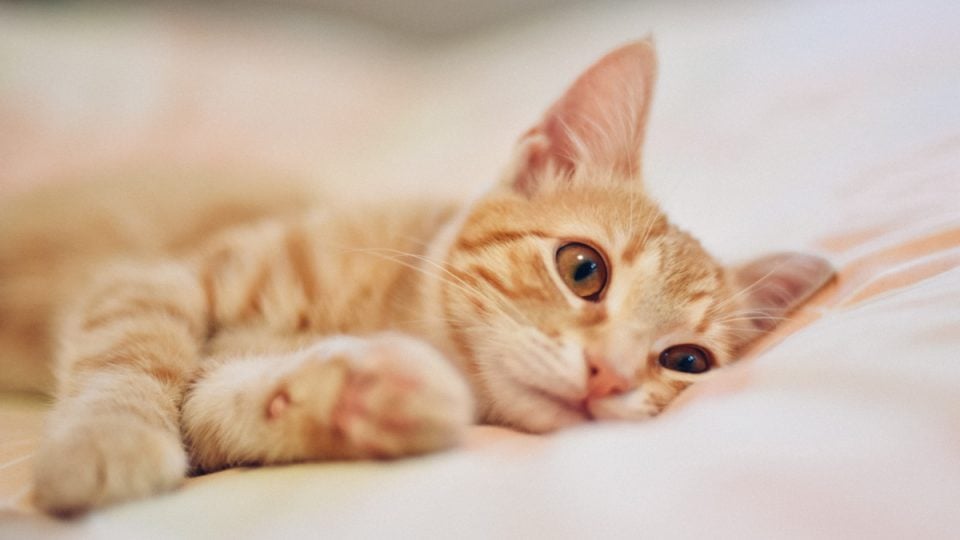Boredom can be pretty easy to spot in humans. Can the same be said about our cats? Yes, cats can and do get bored. Though they are generally independent and self-sufficient, if cats have nothing substantial to do or they’re not being challenged, they can get bored and act out, explains Dr Jessica Pierce, a bioethicist with an interest in human-animal relationships.
Luckily, a few tell-tale signs let you know if your cat is bored. However, it’s important to note that cat boredom largely overlaps with warning signs that your cat may be in pain, such as sleeping or grooming more than usual. For this reason, if you suspect your cat is bored and they’re showing distressing symptoms, take a trip to the vet.
Why Do Cats Get Bored?
Dr Pierce explains two main reasons a cat might get bored: an inability to express natural behaviours and a lack of rewarding challenges. As domesticated cats’ genetic makeup remains relatively unchanged from their wild ancestors, their behaviours and desires remain the same. For example, though they no longer need to hunt and catch their food, a cat still has the instinct to do so.
She says that your cat could become bored or frustrated without outlets for these behaviours. Because of this, indoor cats are more prone to boredom because their opportunities for these behaviours are less. Some natural cat behaviours include:
- finding food (by stalking and pouncing on prey)
- exploring their surroundings
- observing and responding to their environment
- identifying and protecting themselves against threats
- engaging in social behaviours with others

iStock/Oleg Opryshko
Additionally, cats may become bored if they don’t have enough rewarding challenges. Dr Pierce says: “Cats are wired to find hard work rewarding.” The reward they receive is a release of pleasurable neurochemicals in their brain.
Dr Pierce explains that the rewards cats receive after performing hard work are nature’s way of reinforcing resourceful behaviours. Therefore, just like humans, cats find meaningful work inherently satisfying, making them happy. However, boredom creeps in if they do not have anything significant to achieve.
7 Signs Of Cat Boredom
Boredom in cats, unlike fear, is a much more complex emotion to identify, especially as many natural cat behaviours can indicate boredom. However, below are the seven most common causes of cat boredom.
Your cat sleeps too much
Cats sleep a lot, but this penchant for snoozing can signal boredom. Dr Pierce explains that even though cats sleep a lot, they should spend at least some of their time alert and taking an interest in their surroundings. If they don’t or if they are sleeping more than usual, they may be bored.
Your cat overgrooms
Cats can spend up to 50% of their day grooming themselves, so overgrooming can be challenging to identify.
Some signs of overgrooming include:
- bald spots in their fur
- more hairballs than usual
- sensitive sores or their skin
Overgrooming can also signal skin problems, so it’s best to take a trip to the vet to rule those conditions out.

iStock/sdominick
Your cat is disinterested in normal activities
If you’ve noticed your cat is no longer interested in playing with their toys or they aren’t engaging with you as often, they could be bored. This lack of energy is also a sign your cat may be depressed.
Your cat is anxious
Boredom in cats can eventually lead to anxiety because there isn’t enough mental or physical stimulation to satisfy their instincts. Anxious behaviours can include hiding, spraying, humping and destructive behaviours.
Your cat overeats
Your cat may overeat to combat negative feelings associated with boredom. Known as ’emotional eating,’ a cat might eat more food than needed to cope. To combat overeating, you may turn to food restriction right away. However, this isn’t necessarily the right solution; if you don’t introduce another form of entertainment for your cat, you could make things worse and give them fewer outlets to banish boredom.
Your cat seeks attention
If they’re bored, your cat may become clingy or pester you for more attention. For example, studies have shown cats build strong bonds with their pet parents and become more playful and exploratory when they’re around. This social interaction is essential for creating a stronger bond with your cat and their overall wellbeing, so more attention from you is paramount.
Your cat is having issues with other pets
You might have noticed your cat fights with other cats, dogs, or pets. They could be chasing, attacking, or stalking the other pets because they’re bored. As previously stated, a cat’s instinct is to hunt and chase, and they may turn to those other pets to release that energy.

iStock/Barisic Zaklina
How Do I Stop Cat Boredom
The best way to stop your cat from being bored is by having plenty of enriching items and activities at home to keep their instincts engaged. Once you have created a list of activities your cat enjoys, try incorporating more into their daily routine to beat the boredom. Some activities to try for your cat include:
- introducing new foods and/or treats
- catios or outside walks for indoor cats
- hiding food around the house
- interactive puzzles for mental stimulation
- feline massage
- playing music
- cat wand toys to tap into your cat’s instincts to hunt and chase
- investing in scratching posts to activate climbing and balancing instincts


